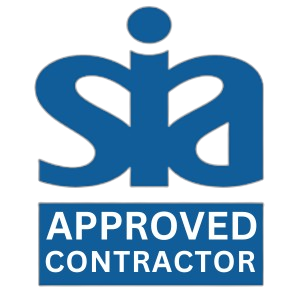The security industry in London is highly regulated to ensure safety, professionalism, and reliability. Businesses and individuals offering security services must comply with specific licensing and legal requirements. Whether you’re a security provider or looking to hire security personnel, understanding these regulations is crucial.
In this guide, we’ll explore London’s security services licensing rules, compliance standards, and how businesses can stay legally compliant.
Why Security Licensing and Compliance Matter in London
Security is a critical aspect of modern life, from retail and event security to private security for VIPs. Without proper regulation, the industry could be vulnerable to unqualified personnel, putting businesses and individuals at risk.
Government regulations ensure that only licensed professionals provide security services, maintaining high standards of conduct, training, and ethical practices.
Key Licensing Requirements for Security Services in London
The Security Industry Authority (SIA) is the regulatory body responsible for licensing security personnel in London and across the UK. Anyone providing security services must hold an SIA license, which is legally required for specific roles.
1. SIA Licensing for Security Personnel
Individuals working in the security industry must apply for an SIA license based on their job role. The most common security licenses include:
- Door Supervisor License – Required for security personnel working at bars, clubs, and venues.
- Security Guard License – Needed for general security roles, including retail security and static guarding.
- Close Protection License – Mandatory for bodyguards and high-profile security specialists.
- CCTV Operator License – For professionals monitoring security cameras and surveillance systems.
- Cash and Valuables in Transit (CVIT) License – Required for personnel transporting high-value goods.
2. How to Obtain an SIA License
To obtain an SIA license, applicants must:
- Be at least 18 years old.
- Pass a criminal background check.
- Complete the required training course for their specific security role.
- Provide proof of identity and right to work in the UK.
- Pay the licensing fee.
SIA licenses are valid for three years and must be renewed before expiration to continue working legally in the industry.
Compliance Requirements for Security Companies in London
Security firms operating in London must comply with various legal and regulatory requirements to maintain credibility and operate within the law.
1. Business Licensing and Accreditation
Security companies must obtain a Security Industry Authority (SIA) Approved Contractor Scheme (ACS) accreditation. This demonstrates compliance with industry standards and best practices, increasing trust among clients.
2. Employment and Training Standards
Security firms must ensure that all employees:
- Hold valid SIA licenses.
- Receive up-to-date training on emergency response, conflict resolution, and security protocols.
- Follow GDPR compliance when handling surveillance footage and client data.
3. Health and Safety Regulations
Security companies must adhere to the Health and Safety at Work Act 1974, ensuring that security personnel are trained to handle emergency situations, including fire safety, first aid, and crowd control.
4. Data Protection Compliance
Security firms using CCTV surveillance must comply with the General Data Protection Regulation (GDPR) and the Data Protection Act 2018. This includes:
- Informing the public about CCTV surveillance through clear signage.
- Storing and handling security footage securely.
- Ensuring access to data is restricted to authorized personnel.
The Role of Security Services in London’s Public and Private Sectors
London has one of the most advanced security industries in the world, covering a wide range of security services to protect businesses, public spaces, and individuals.
1. Corporate Security
Many businesses hire security personnel to prevent theft, monitor access control, and ensure employee safety. Office buildings, banks, and retail stores all rely on licensed security guards.
2. Event Security
Large-scale events, concerts, and sports games require trained security personnel to manage crowds, check entry passes, and respond to incidents. Event security teams must be well-versed in emergency protocols and risk assessment.
3. Residential and Private Security
VIPs, celebrities, and high-net-worth individuals often require private security services, including bodyguards and close protection officers.
4. Public Sector Security
Government buildings, transportation hubs, and hospitals rely on security services to ensure public safety. This includes security screening at airports, surveillance monitoring, and patrolling high-risk areas.
The Future of Security Licensing and Compliance in London
The security industry is evolving, with new technologies like AI-driven surveillance and biometric access control becoming more prevalent. As security threats become more sophisticated, London’s security regulations may continue to adapt.
Key trends include:
- Stronger cybersecurity requirements – As digital threats increase, security firms may need stricter compliance for data protection.
- Advanced surveillance regulations – Laws surrounding AI-powered CCTV and facial recognition are likely to be updated.
- Higher training standards – Continuous professional development for security personnel may become mandatory.
Final Thoughts: Ensuring Legal Compliance in London’s Security Industry
Understanding and complying with London’s security licensing laws is essential for businesses and individuals providing security services. Whether you’re a security professional or a company hiring security personnel, staying informed about SIA licensing, data protection laws, and safety regulations is crucial.
By following the right legal processes, security firms and professionals can operate confidently, ensuring high standards of protection and professionalism across London.



